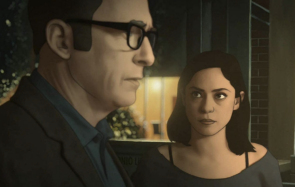In an essay in The Washington Post’s new publication The Lily called “I’m a pro-life feminist,” a writer and self-described feminist Kate Bryant laments that she feels ostracized by the feminist movement for her anti-abortion beliefs. Of herself and other “pro-life feminists” she writes, “We were told that we couldn’t join (the Women’s March), that we aren’t feminists simply because we are pro-life.”
I’m frustrated that we’re still debating why feminism and pro-life politics don’t mesh. (The Democratic Party can’t even seem to decide whether or not anti-choice politicians are welcome.) But, notice, I wrote pro-life politics. I don’t care what you personally believe. I don’t care if you would never have an abortion and believe in your heart of hearts that you’d sooner die than have an abortion to save your own life.
But here’s a fact: Without access to safe abortion, women die. It’s not a talking point. It’s not politics. It’s not a feminist “belief.” It’s a fact.
You may believe it’s more important that embryos and fetuses live at all cost, than do the women in whose bodies they grow. But that does not change the fact that women die when we do not have access to safe and legal abortion. Forcing a person to remain pregnant and birth a baby, regardless of whether they want to or whether they are putting their own health or life in danger, is simply inhumane and strips someone of their bodily autonomy.
The feminist movement is about creating a world where all people have the rights and ability to make decisions for themselves. And reproductive justice, as defined by SisterSong, is “the human right to maintain personal bodily autonomy, have children, not have children, and parent the children we have in safe and sustainable communities.”
Although the pro-life movement has elevated “the unborn” as entirely separate from a woman’s body, any parent can tell you that they’re deeply connected. An embryo or fetus is connected to our bodies by blood and tissue. Our bodies are connected to our history, our ethnicity, our income level, our gender identity, our access to knowledge and information, familial relationships, exposure to violence and war, race, religion, our physical abilities, mental health, emotional stability, and sexuality.
Therefore the “fight for the unborn” cannot be disconnected from the fight for women’s lives and all that makes up who we are and how we live. This is why reproductive justice is not solely about abortion. Unfortunately, the pro-life movement has isolated the medical procedure and the embryo as if they exist independent of a woman..
The feminist movement at its best strives to recognize the mosaic of our lives. And my role as an activist is to support the most marginalized and vulnerable among us to ensure they have access to the tools, knowledge and resources to make the best decisions they can for themselves.
But Kate Bryant doesn’t see this. She writes, “We are the women who consider ourselves feminists, but also have respect for all human life from conception.” There’s quite an assumption embedded in that sentence— that feminists are people who have no respect for human life.
I’m a loving, compassionate, intelligent human being. I am a mother of two young adults (15 years old and 18 years old). I had a miscarriage in between each of these pregnancies. My husband and I have been married for 21 years and I have many other roles I cherish: daughter, sister, friend, activist, professional communicator, and writer. I have devoted myself to working for justice and equity for all humans on this great globe and so have in fact devoted myself to “human life.”
People like Bryant may that human life is human life whether it’s a zygote, an embryo, a fetus, or a pregnant, 34-year-old mother of two children. But once your “belief in human life from conception” becomes a fight to impose your beliefs on all of society, and in particular on those people who are most impacted by injustice, that’s no longer a belief. No, then your belief becomes someone else’s chains.
Close to half of all women in the United States will have an abortion in their lifetime. It’s a necessary medical procedure, according to the World Health Organization (WHO). The group notes that each year 7 million women are admitted to hospitals because of complications related to unsafe abortion. Unsafe abortion is the fourth leading cause of maternal mortality. It’s why the WHO calls unsafe abortion a “preventable pandemic.”
We know what works to ensure women greater autonomy over our own lives. It’s safe and legal abortion care. Access to contraception. And comprehensive sexuality education. Yet, the pro-life movement blocks these too.
I worked for a women’s health center, which also provided abortion care, for 7 years. We provided abortion care to women who considered themselves pro-life. We cared for young people, older people, mothers, women who were poor and women who were wealthy. We offered care to women who were raped, women whose birth control failed, and immigrant women who had nowhere else to go. This is the truth of women’s lives and bodies. We are not political messaging. We are human beings.
Someone’s desire to participate in a major march does not trump anther woman’s right to be able to make decisions for herself. She writes, “I can only imagine how much more powerful women could be if we stood together and supported one another instead of spending time attacking one another.” I couldn’t agree more. Kate, when you’re ready to embrace the decisions women make for themselves and to put aside your own “belief” that none of them deserved the right to care for themselves in that moment—only then we can stand together in unity and in strength.







